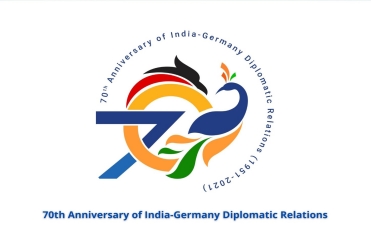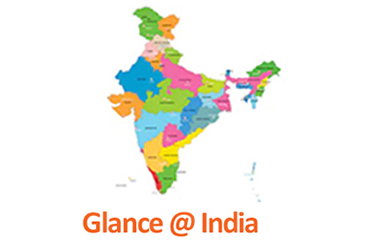- Home
- About Us
-
Consular Services
- Covid related travel requirements
- Resumption of Tourist Visa Services

- Instructions regarding entry into the consular Wing
- Reissue of International Driving Permit (IDP)
- General Contact details
- Postal Applications
- Visa Services
- Passport Services
- OCI Information
- Renunciation of Indian Citizenship/Surrender Certificate
- Attestation,Consular and Misc.Services
- Weekly Open House
- MADAD - Consular Services Management System
- Indian Community Welfare Fund
- FAQs on Marital disputes involving NRI/PIO spouses

- Public Notices & Circulars
-
Embassy Wings
- Economic & Commercial Wing
- Contacts
- Overview of Indian Economy
- India-Germany Economic & Commercial Relations
- Doing Business in India
- Make in India

- Invest India

- Flagship Programs of Government of India

- Doing Business in Germany
- Trade Fairs
- Trade Dispute Advisory
- Foreign Investment
- Foreign Trade
- Newsletters

- Attestation of Documents

- Community Welfare
- Culture
- Information Wing/Media Center
- Science & Technology

- Political
- Consular
- Defence Wing
- Economic & Commercial Wing
-
Media Center
- e-books

- India Perspectives

- Documentaries

- Constitution Day 2022
- Calendar of Activities
- Press Releases
- News Articles
- Constitution Day
- Flag Code of India and Prevention Insults National Honour Act, 1971
- INDIA @THE UN SECURITY COUNCIL 2021-2022
- Important statements by policy-makers in India

- Photo Gallery
- Yoga

- e-books
- India-Germany Relations
- MIIM
- Useful Links
- Tenders
India-Germany Economic & Commercial Relations
Embassy of India
Berlin
***
India-Germany Economic & Commercial Relations
1. Germany is India’s largest trading partner in Europe. It has consistently been among India’s top ten global partners and was the seventh-largest trading partner in FY 2020-21 (10th during FY 2021-22 up to October 2021). (Source: DoC)
2. Bilateral trade in 2020-21 was USD 21.76 billion registering a marginal decline of about 1% over FY 2019-20. Indian exports during this period decreased by 2% reaching USD 8.12 billion and Indian imports decreased by 0.35% to USD 13.64 billion. During 2021-22 (until October 2021), bilateral trade was USD 13.83 billion, which was an increase of 16% over the corresponding period in FY 2020-21. Indian exports with US $ 5.4 billion during this period witnessed an increase of about 27% and Indian imports with US $ 8.4 billion registered an increase of 10%. (Source: DoC)
3. German investments in India: Germany is the 7th largest FDI source for India. The total FDI from Germany to India from April 2000-September 2021 is over US$ 13 billion. In FY 2020-21, German FDI in India was US$ 667 million. During 2021-22 (until September 2021), German FDI was US$ 431 million (Source: DPIIT). As per Indo-German Chamber of Commerce, there are more than 1,700 German companies in India. German investments in India have been mainly in sectors of transportation, electrical equipment, metallurgical industries, services sector (particularly insurance), chemicals, construction activity, trading and automobiles.
4. Recent German investments in India include investments in 2021 by German automotive components manufacturer Webasto, invested US$ 33.9 million to set up a sunroofs manufacturing facility in Pune. German lifestyle brand Birkenstock launched its 1774 collection through the e-commerce route with an Indian partner, Seva Group. Bayer, a German agrochemical group, launched a new manufacturing plant at Vapi, Gujarat with an investment of US$ 28 million. German auto component major ZF Friedrichshafen AG has lined up a Euro 200 million investment in India to increase its share in connected and autonomous technologies adopted by automakers and a fifth of the investment volume will be allocated for a tech centre in Hyderabad for doing global R&D work for the company.
5. Indian investments in Germany: As per CII, there are more than 213 Indian companies operating in Germany, and are involved in Trading, manufacturing, R&D and innovation, and services. Indian companies have invested in Germany mainly through Mergers and Acquisitions (M&A). Investments are mostly in IT, automotive, pharma, biotech and manufacturing. The penetration of Indian software companies in German market is increasing. Major clusters of Indian companies are in the States of North Rhine Westphalia, Hesse, Bavaria and Baden-Württemberg.
6. Recent Indian investments in Germany include an announcement of Wipro Limited to set up a Digital Innovation Hub in Düsseldorf, acquisition of full-service IT provider – Postbank Systems AG from Deutsche Bank by Tata Consultancy Services (TCS), the opening of a new Digital Innovation Centre in Du?sseldorf by Infosys to support their clients in digital transformation, JBM Group’s acquisition of majority stake in German auto components manufacturer Linde-Wiemann GmbH, the establishment of the first global R&D Centre near Munich by Hero MotoCorp and L&T’s acquisition of German IT firm Nielsen+ Partner to strengthen its banking and financial services software segment.
7. Fast Track Mechanisms are in place by DPIIT and the German Ministry of Economic Affairs and Energy (BMWi) to address issues/ grievances of companies in India and Germany. The mechanism was announced in 2019 at the 5th IGC which started meeting since 2020. The last meeting was held in January 2021.
8. A Market Entry Support Programme, the “Make in India Mittelstand” (MIIM) for German Mittelstand (SMEs) and Family-Owned Businesses is being implemented by Embassy of India, Berlin to support high potential Mittelstand companies with medium to long term potential for manufacturing in India. As of date, 152 companies are being facilitated through this Programme with a declared investment of nearly € 1.46 billion. More than 30 of these companies are ‘hidden champions’ that are world market leaders in niche products/technologies.
9. The 5th IGC identified the focus areas for further cooperation, which include, inter alia, Artificial Intelligence and Digitalization, agriculture, clean energy, e-mobility, Urban development, Smart Cities, railways, Industry 4.0, Start-Ups, Skill development, and water and waste management.
10. Both countries see mutual benefit in an India-EU Free Trade Agreement and Investment Protection Agreement, and announced their desire to progress on the Agreements during the 5th IGC. The negotiations on the FTA and IPA (earlier referred together by India as Bilateral Trade and Investment Agreement) were halted in 2013. In May 2021, during the India-EU Summit, both sides announced the restart of the negotiations on the India-EU FTA and beginning of talks on a separate IPA.
Development Cooperation:
11. Germany has been an important development cooperation partner since 1958. The last negotiations were held in November 2021. Germany has committed a total volume of new funding of US$ 1,368.02 million for 2021 [i.e. US$ 1,340.91 million for Financial Cooperation & US$ 27.11 million for Technical Cooperation]. Energy, sustainable economic and urban development, environment & management of natural resources are priority areas.
12. Financial assistance from Germany is mainly as soft loan, composite loans or grants routed through KfW, German Government’s Development Bank. Technical assistance is provided through GIZ, German Government’s development agency.
13. Major strategic projects are in the sectors of energy (renewables, Green Energy Corridor), Indo-German Solar Partnership, Skill Development and sustainable urban development (water/sanitation/waste, climate friendly urban mobility, smart cities).
****
























